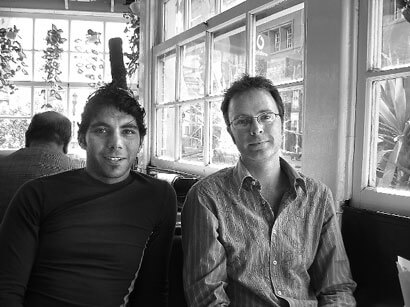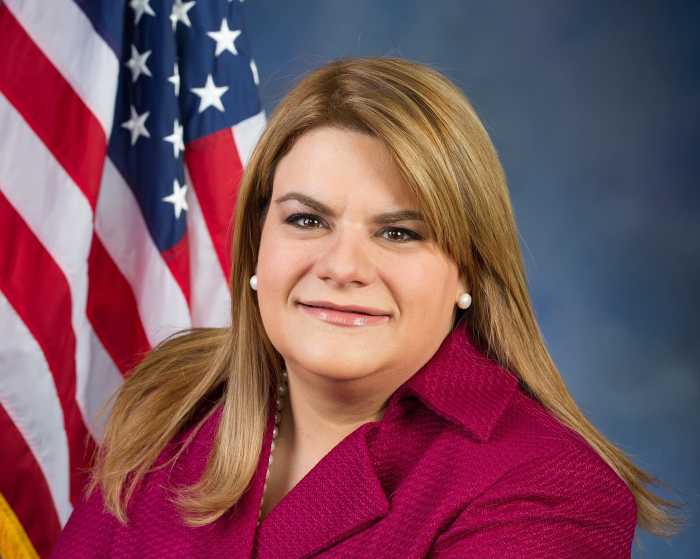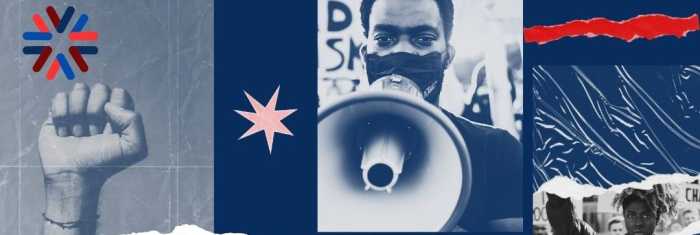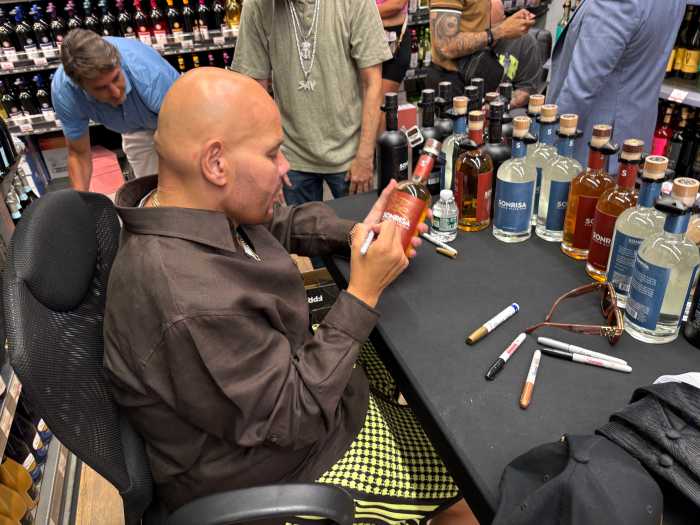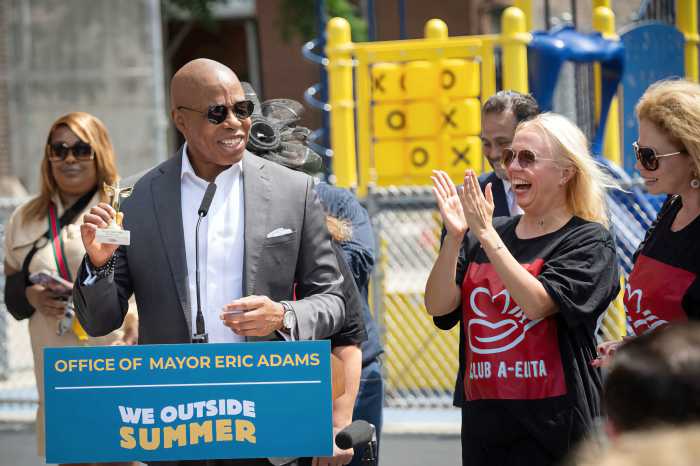Egyptian judges who ran gay trials allegedly got American training
Four Egyptian judges who have been involved in the prosecutions of men who have sex with men in that country on charges of habitual debauchery have received training paid for by U.S. taxpayers, according to a source familiar with the training who insisted on anonymity.
But when Gay City News sought confirmation that the judges had received U.S.-funded training, the federal agency that funds the training first said it would confirm if the judges were enrolled in the program, but told the newspaper eight days later that a policy forbids the release of the names of those trained.
One of the four judges—Tawfik Alam—oversaw the trial of Wissam Toufic Abyad, a Lebanese national, who was arrested in 2003 by Egyptian police after he set up a date on the Internet with another man.
“I had an e-mail from some Spanish guy,” Abyad said on April 17 at the annual meeting of Amnesty International USA. That “Spanish guy” was a police officer and Abyad was arrested, interrogated, and threatened with torture by police. He was convicted of “habitual debauchery” and sentenced to 15 months in prison. He was released after serving three quarters of his sentence, which is standard practice in Egypt.
Abyad’s appeal was heard by the three judges who received U.S. training—Yaser Ali El Zyat, Bahgat El Hosamy, and Nomear Negam—and upheld his sentence.
“They did not provide any justification for the sentence, and left that part of his verdict blank,” wrote Derek Reynolds, Abyad’s American partner, in an e-mail to Gay City News. “It was painfully obvious that they just wanted him to pay for his perceived sexual orientation.”
Reynolds recently returned to the U.S. after living in Egypt for ten years while working with private aid agencies there. He also spoke at the April 17 meeting.
The Egyptian government’s crackdown on men who have sex with men started seven years ago, according to a 2004 report from Human Rights Watch (HRW) that examined the “official files in the cases of 126 men arrested on ‘debauchery’ charges since 1997.”
The crackdown gained widespread public attention in 2001 when Egyptian police raided the Queen Boat disco in Cairo and arrested 60 men. Fifty-two were prosecuted and their trials resulted in a mix of acquittals and guilty verdicts. Hosni Mubarak, Egypt’s president, voided all the verdicts in 2002 and the men were retried. In 2003, 21 of the men were convicted and given sentences as long as three years in prison.
The HRW report includes allegations of harassment and torture by Egyptian police of gay and bisexual men. The rights group knows of 179 men who have been prosecuted for “debauchery” since 2001, but “in all probability that is only a minuscule percentage of the true total. Hundreds of others have been harassed, arrested, often tortured, but not charged,” according to the report.
The four judges were reportedly trained in the Administration of Justice Support project funded, in part, by the U.S. Agency for International Develop (U.S. AID) and administered by American Mideast Educational and Training Services, a private agency. Egypt’s Ministry of Justice contributed 20 percent of the project’s $18 million budget, according to a 1998 Associated Press (AP) story.
The project, which started in 1996 and ended in 2002, was intended to make Egypt’s civil court system better able to resolve disputes. The assumption was that more efficient courts would promote democracy and attract foreign investment to Egypt.
The project trained 3,000 judges, supplied some of them with computer equipment, and brought Egyptian judges to the U.S. for training on five “study tours,” according to the 2002 annual report from the educational and training agency. Two judges who participated in Abyad’s case came to the U.S. on a “study tour.”
In the 1998 AP story, Maher Abdel Wahid, then the senior undersecretary at Egypt’s justice ministry, endorsed the effort saying “This is our number one project.”
Wahid is now Egypt’s prosecutor general, a position that is equivalent to the attorney general in the U.S.
While the project was concerned with civil law, the equipment and skills are applicable in criminal cases, which potentially puts U.S. taxpayers, lesbian and gay taxpayers in particular, behind the crackdown. U.S. AID disagreed.
“The U.S. AID judicial training program in Egypt is a commercial law program only,” wrote Harry Edwards, an agency spokesperson, in an e-mail. “The program is not involved in training judges involved in the criminal justice system in Egypt, to which the above-stated cases belong.”
Gay City News first sought confirmation from U.S. AID that the four judges had received U.S-funded training on May 19 with a May 25 deadline that the agency missed. The agency then declined to confirm the judges’ participation in the training on the May 27.
“Due to privacy and security issues, we are prohibited from confirming or denying any individual’s participating in any USAID programs,” Edwards wrote. “The reason for this policy is that participation in US-sponsored programs can have serious personal or professional consequences to individuals in certain countries.”
Before contacting U.S. AID, the newspaper sought confirmation from the U.S. Department of State that reported no record of the four judges participating in any educational or cultural programs there. The U.S. AID is part of the State Department, but it maintains separate records.
The U.S. AID delay came because U.S.-based officials had to speak with colleagues in Egypt to confirm the judges’ participation and it was during that conversation that they learned of the policy barring disclosure, according to Edwards.
The Egyptian Embassy in Washington, D.C. did not respond to requests for comment.
Human rights groups that have objected to the crackdown have included many of the judges who ran the trials in their complaints.
“We did make a comment on a lack of due process,” said Michael Heflin, director of the OutFront Program at Amnesty International. “We did express concern about the way the trials were managed by the judges.”
The HRW report charged that some judges rendered guilty verdicts on little evidence or without hearing from defense attorneys while others acted with an obvious bias against the defendants. One judge, Medhat Fahwakih, opened a trial by demanding “Where are the khawalat? Bring in the khawalat,” according to the report. Khawalat roughly translates as “faggots.”
A few judges dismissed cases with harsh words for the Egyptian police and prosecutors, according to the HRW report. For Amnesty’s Heflin, the four judges illustrate a broader point.
“I think beyond these four judges, one of the points that Amnesty has been making, is that Egypt overall is the second largest recipient of U.S. aid after Israel and the U.S. government has a right, and at Amnesty we would say a responsibility, to ensure that any funds that are going to Egypt are being used in a way that promotes human rights and doesn’t undermine people’s rights,” Heflin said.

